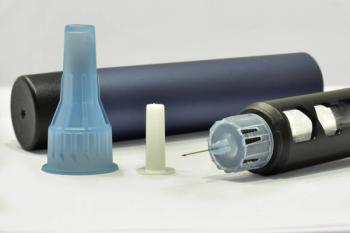
Study Compares Cost, Accessibility of Novel Cancer Drugs in US and India
The advent of generic and biosimilar medicines for novel treatments has helped bridge the gap in the delivery of cancer care between the United States and India, according to the study.
A study compared the costs of and access to novel drugs for the treatment of chronic lymphocytic leukemia (CLL) and lymphoma in the United States and India within the last 5 years, and the effect of the introduction of generic and biosimilar medicines on accessibility and affordability.
Published in JCO Global Oncology, an American Society of Clinical Oncology (ASCO) journal, the study provided an in-depth analysis that contrasted the health care systems in the United States and India, and subsequently cost of and access to cancer care delivery as related to the treatment of CLL and lymphoma.
Although blood cancers are prevalent in both the United States and India, investigators asserted that cancer care delivery systems in developed and developing countries are starkly different. While the United States spends 17.8% of its gross domestic product (GDP) on health care, and approximately 90% of Americans are covered by health insurance, India utilizes 3.89% of its GDP on health care, and most of its citizens pay out-of-pocket for medical expenses, with few having the ability to attain health insurance. In regard to cancer care, the regional cancer centers in India offer subsidized rates only to a very limited population.
According to researchers, generic medicines and biosimilars address these incongruities by reducing the cost of drugs for the consumer. The Drug Price Competition and Patent Term Restoration Act (Hatch-Waxman Act, 1984) has facilitated the process to approve generic drugs. Data showed that developing biosimilars has increased access and affordability of biologics for the treatment of CLL and lymphoma in India.
Below is a summary of several novel drugs that have showed favorable results in improving patient outcomes for CLL and lymphoma, and their current availability in the United States and India.
Antibodies
Rituximab is an anti-CD20 monoclonal antibody approved in the United States for treatment of B-cell non-Hodgkin lymphoma, as well as for untreated and relapsed CLL and an induction and maintenance therapy in follicular lymphoma (FL), among other therapies. In India, the biosimilar Reditux became available in 2007 and resulted in reductions in price and increased availability across the country. Studies have found that Reditux (biosimilar) demonstrated comparable pharmacokinetic and toxicity profiles as rituximab.
Obinutuzumab, a fully humanized anti-CD20 antibody, was approved for treatment of relapsed CLL in 2013 in the United States and later approved for induction and maintenance in untreated advanced FL, showing favorable results for 3-year progression-free survival (PFS). In the United States, obinutuzumab is manufactured and marketed by Genentech, but it still is expensive in India.
The second-generation CD20 antibody ofatumumab was initially made available in India, but was withdrawn from commercial use in 2019.
Mogamulizumab, the humanized monoclonal antibody against the chemokine receptor CCR-4, has been approved for patients with relapsed or refractory (R/R) mycosis fungoides or Sezary syndrome, backed by promising PFS results, although the drug is not yet available for treatment in India.
Nivolumab is approved for patients with R/R classic Hodgkin lymphoma (cHL) with previous autologous stem cell transplantation (ASCT) based on promising results on overall response rates (ORR). In India, nivolumab is available at an average cost of $1420 for 100 mg.
Pembrolizumab is approved for treatment of refractory primary mediastinal large B-cell lymphoma, based on a trial evaluating ORR. Pembrolizumab is available in India at an average cost of $6010 for 200 mg.
Antibody-Drug Conjugates
Polatuzumab vedotin, the novel CD79b-directed antibody-drug conjugate, was approved by the FDA in combination with bendamustine and rituximab for patients with refractory DLBCL with diseases progression following 2 lines of chemotherapy. The therapy is currently unavailable in India.
Brentuximab vedotin was first approved for patients with Hodgkin lymphoma with disease progression following ASCT or after 2 previous chemotherapy treatments and who were ineligible for a transplantation. Indications were later added for relapsed anaplastic large-cell lymphoma, treatment-naïve advanced cHL, and untreated systemic anaplastic large-cell lymphoma (ALCL) or other CD30+ T-cell lymphomas (TCLs) in conjunction with cyclophosphamide, doxorubicin, and prednisone (CHP). The drug is not currently available in India.
BTK Inhibitors and PI3 Kinase Inhibitors
The Bruton tyrosine kinase (BTK) inhibitor ibrutinib is approved for relapsed and untreated CLL, relapsed mantle cell lymphoma (MCL), relapsed MZL, and Waldenstrom macroglobulinemia, as well as for treatment of R/R MZL. Although ibrutinib is available in India, the cost is high— $4700 for 140 mg. However, a generic formulation has recently become available at $410 for 140 mg.
Acalabrutinib, a second-generation BTK inhibitor, is approved for treatment of refractory MCL; it is not available in India, and patients with R/R MCL are currently being treated with ibrutinib or lenalidomide with rituximab. While outcomes are similar, a single-agent therapy is more convenient and less toxic for patients, according to investigators. Researchers also said that since generic and affordable ibrutinib is available in India, this may delay the availability of acalabrutinib in India.
BCL-2 Inhibitor
Venetoclax, an oral BCL-2 inhibitor, received FDA approval for treatment of relapsed CLL in patients who had a 17p deletion. Venetoclax with rituximab is approved for CLL or small lymphocytic lymphoma treatment in patients who had received at least 1 previous therapy. Patients in India do not yet have access to this therapy.
Proteosome Inhibitor
Bortezomib is a protease inhibitor approved for patients with relapsed MCL and also for patients with untreated MCL ineligible for ASCT. There is also an affordable generic version, predominantly used for managing multiple myeloma, although it is not used in India due to the fact the lenalidomide, rituximab, and ibrutinib are used to treat patients with relapsed MCL.
Immunomodulators
Lenalidomide, an immunomodulary agent, is approved for treatment of relapsed MCL, as well as R/R FL or MZL. The medication is available in India as an affordable generic and subsequently the use of the drug has expanded considerably in the country.
Axicabtagene ciloleucel is approved in the United States in patients with R/R DLBCL; tisagenlecleucel has been approved for use in adults with relapsed DLBCL following 2 lines of chemotherapy. However, chimeric antigen receptor (CAR) T-cells requires substantial cost, expertise, and infrastructure. As a result, the treatment is not currently available in India.
Investigators discussed the role of compulsory licensing in order to improve effective management of lymphoid cancers in India, as well as expanding the market for biosimilars and generics in India and the United States. Not only that, but universal health insurance coverage would also greatly improve access to effective drug therapies.
Reference:
- Sathyanarayanan V, Flowers CR, Iyer SP. Comparison of access to novel drugs for lymphoma and chronic lymphocytic leukemia between India and the United States. JCO Global Oncology. 2020; doi: https://ascopubs.org/doi/full/10.1200/GO.20.00012
Newsletter
Pharmacy practice is always changing. Stay ahead of the curve with the Drug Topics newsletter and get the latest drug information, industry trends, and patient care tips.






















